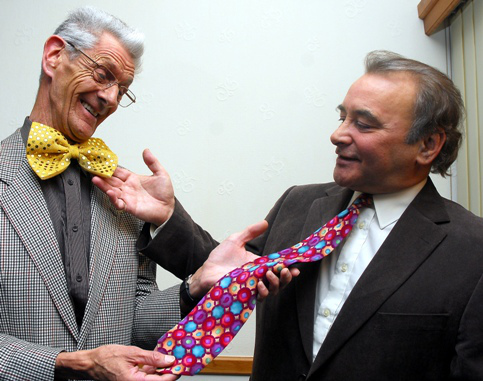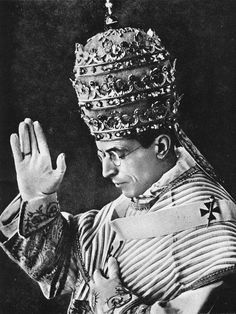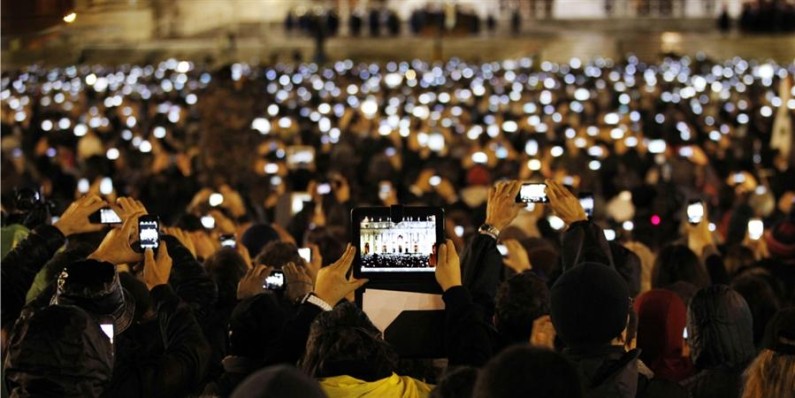
Suum cuique
Perhaps it is no coincidence that the motto of the Faculty of Law at Lund University in Sweden is Suum cuique. Commonly rendered into English as to each his own, this Latin phrase was popularized in the 1st Century BC by none other than Cicero. Its roots are more ancient still, the principle being found expressed in the Greek world as early as Plato's Republic.
In its original context, the expression was understood more in terms of each person working, to the very best of his unique gifts or talents and without interfering in the affairs of others, towards the service of society as a whole.
However, in our own time it is understood more as an elevation of individual choice and preference. Whilst this more modern sense of ''each to their own'' may be legitimate in terms of tastes in food, clothing, furnishings and, to some degree, entertainments and political affiliations, the phrase has also morphed horribly into a kind of relativistic credo.
For example, one may encounter it being used in a very specific way among some of the more pragmatic types resident here in the north-west region of England. Attempts to talk to such folk in terms of objective moral or religious principles can soon run aground when, like the fictional old Lancashire women in Les Dawson's comedy sketches, such folk suddenly gurn their faces and announce, ''Oh well, each to their own!''
To which rapid put-down, more conciliatory types might soften the blow by condescendingly adding, ''Whatever makes you happy, dear!''
Such conversational exchanges typically precede fresh outpourings of strong tea and the proffering of extra cake.
Alas, it is perhaps the same the world over in these days of such shape-shifting relativism.
The Love Born of Faith


I used to visit a very different kind of old lady out near the town of St. Helens. Although she has since gone to her eternal reward, I always think of little Edie as one of the holiest souls that I have ever met.
Here was a Catholic who spoke of Jesus, Our Lady and some of the saints as intimate friends. Her face lit up like that of a small child whenever their names were mentioned in her presence. Edie was blessed with a rare kind of innocence that made you regret having ever offended God with a single sin in your whole life.
Any mention of the devil horrified her. With wide eyes, she would exclaim: ''Oh, he's horrible!''
Edie looked forward to her Holy Communions days in advance with both expectation and wonder. The Rosary was never far from her hand as she lay bed-bound and cut off from society by leg ulcers that were both painful and odorous.
In spite of these crosses, which led to the eventual loss of the small terraced house that she had called home since her childhood, Edie's chief hallmarks were peace, love and a gentle but authentic joy which pointed one towards Christ.
What did trouble her was atheism and sin.
When she finally ended up in a nursing home, Edie was greatly distressed to hear an old woman in a neighbouring room declare an avowed denial of the existence of God. When that woman died suddenly just a few days later, Edie was very troubled for her immortal soul.
As a young lady, Edie had made a pilgrimage to Rome. Whilst there, she had not only seen Pope Pius XII, but had even received a blessing from him with a large group of other pilgrims.
The reverence and happiness with which Edie, almost whisperingly, described His Holiness from her sick-bed, still lives powerfully in my memory, almost two decades after hearing it. Her description bespoke a time when even Popes were still in awe of the majestic dignity of their office as Christ's Vicars on earth.
Such was the mystique with which Papal blessings were once surrounded - and still are to those blessed with the Faith - that I even remember Protestants around here speculating about whether such a blessing could ''work'' through the TV during the Papal Visit to England in 1982.
Maybe some cradle Catholics tend to forget, too, the wonder which is first experienced when receiving a blessing from any of the Successors to the Apostles in the Hierarchy.
Or even, for that matter, from one's own parish priest when first grasping something of the true nature of the priest as alter Christus.
Virtual Blessing?

That awesome power to bless, in persona Christi, is the reason why refusal to bless, as the Church does, is so grave. The Catholic Dictionary of 1928 recalls: ''God is the source of all His blessing, but certain persons have special authority to bless in His name, so that this blessing is more than a mere prayer; it actually conveys God's blessing to those who are fit to receive it.''
And yet, we have all likely heard of priests, and even bishops, who seem somehow ashamed to bless in the Name of the Father, and of the Son, and of the Holy Ghost. Or else, in a seeming submission to some misguided sense of equality, prefer to ask God not to bless You as the faithful, but to bless us all, like Tiny Tim!
''Each to His Own'' Relativism Enters the Papacy?
There was nothing miniature about the assembly of famous internet Big-Wigs who met with Pope Francis earlier this week for a ''Common Values'' conference in Rome. The event was attended by leaders from the digital world representing Google, WPP, Publicis, Media-Participations and the publishers of the video game Candy Crush.
We will not dwell here on Pope Francis' use of this meeting to further his ongoing calls for a touchy-feely ''revolution of tenderness'' marked by the ''importance of a caress''.
More relevant to our discussion here is his desire to recognize the presence at the meeting of members of different religions and his concluding attempt to ''bless everyone according to their own religion''.
As a Catholic lay-man down here at the cliff-face, I can only wonder how this does not represent a series of implicit, though grave, denials which are as practical as they are public.
To my eyes, this unprecedented attempt includes: a denial of the One True God Who has revealed Himself to us as Father, Son and Holy Ghost; a denial of the papal authority received from Christ to baptize and teach all nations; a denial of any desire to bless in the Holy Name of Jesus; a denial of the One True Faith which Our Lord and Saviour Jesus Christ founded on the Apostles for the salvation and sanctification of all peoples; a denial of the custom followed by all previous popes of blessing according to the tradition of the Church; and, finally, a denial of the opportunity to give a genuine blessing to any Catholics who were present at the meeting.
This last point bears on a related theme: it should be apparent to all observers, whether Catholic or not, that the only reason that Pope Francis has a global platform at all is because he is supposed to represent Jesus Christ, Catholic Tradition and Catholics in general.
This is the only basis that he, or any other pontiff, really has for expecting anyone to listen to anything that he says.
And yet Francis, in this and various other instances, appears to present himself not so much as the leader of Catholics, much less as the Vicar of Christ, but as some kind of leader of all religions, religious people and religious sentiments.
But who made him such?
And from whence does he derive the power, or even the right, to bless all people according to their own religion? If he does not care whether the Most Holy Trinity, the Hierarchy or any faithful Catholics approve, does he not fear to offend the Koranic doctors?
And what if the religion of some of those present had been satanism?
In any case, why should anyone listen to, much less desire a pseudo-blessing from, a man who seems to have so little respect for the religion he is meant to officially represent? Please understand, I am asking that question philosophically.
Conclusion
Decades after receiving a blessing from Pope Pius XII, little old Edie could still only speak of it, with her eyes brightly twinkling, in tones of hushed reverence.
In the days of Francis, Catholics still speak of his ''blessings'' in hushed terms. Though, sadly, for different reasons.Â
Please join us in praying for Francis each day at 3pm.



